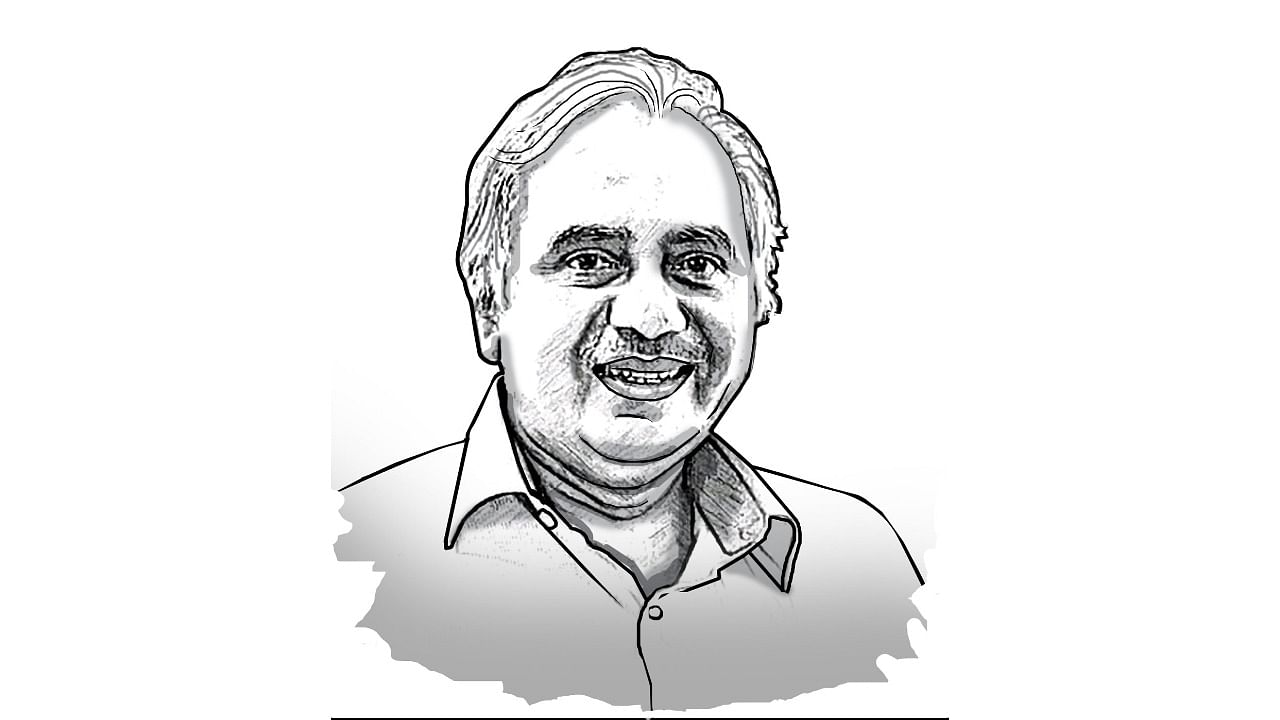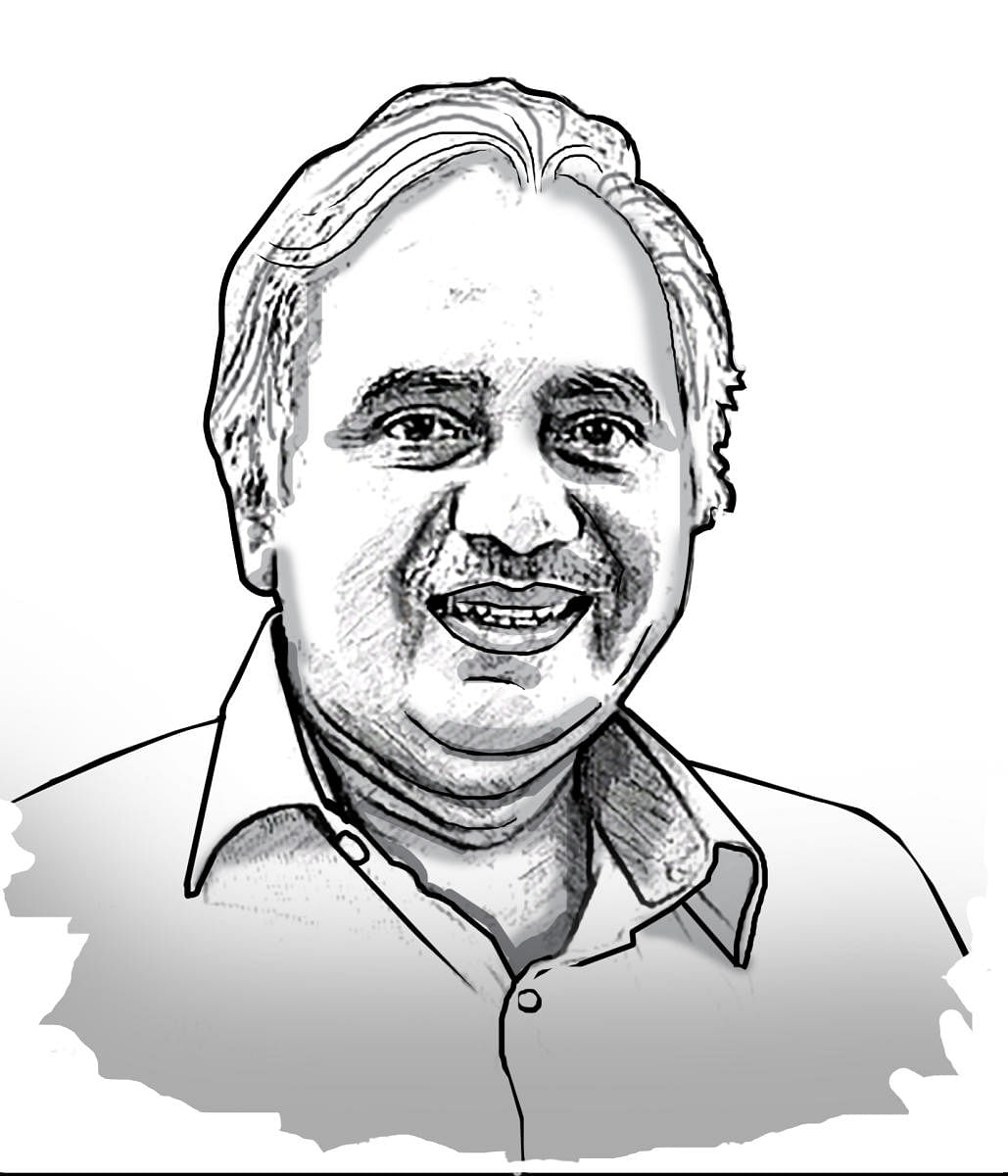
Seshadri Chari reads between the lines on big national and international developments from his vantage point in the BJP and the RSS. X/@seshadrichari
Credit: DH Illustration
The 16th BRICS summit at Kazan, in Russia, might turn out to be a watershed moment, not only for the 15-year-old institution but also for the global economy. Three important aspects of this summit merit closer attention and greater understanding as they are likely to have a deep impact and influence on the emerging world order, geopolitics and geo-economics.
The recently finalised patrolling arrangement between India and China, signalling the end of a four-year stand-off following the Galwan clash, paved the way for a meeting between Prime Minister Modi and Xi Jinping. But for this rapprochement and subsequent camaraderie witnessed in Kazan between the two leaders, one of the pillars of the BRICS agenda would have been left shaky.
A key agenda of the summit involved the provision of an alternative currency model to end the supremacy of the American dollar, de-dollarisation, new trade policies, and the usage of local currencies. This necessitated building a consensus among the founding members, the other new members as well as several emerging economies who were special invitees to the summit. One of the important talking points was the all-pervasive USD which was accepted by consensus as a global exchange and payment settlement currency at Bretton Woods, New Hampshire, in 1944, replacing Bancor, a supranational currency conceptualised and proposed by John Maynard Keynes.
Besides the global supremacy of the USD, both China and Russia have compelling reasons to challenge the dollar and come up with an alternative urgently. But such an initiative will need a credible, viable and sustainable mechanism anchored in an institution supported by economies with strong fundamentals. There was no way India could have been kept out of such a meeting with great significance and far-reaching consequences. Hence, probably, the India-China agreement.
Another important aspect of the summit pertains to the economic woes of China and India’s increasing manufacturing capabilities and investment-friendly market conditions. Pressure on Chinese economy is mounting as a result of the imposition of higher tariffs on Chinese goods by several EU members and roadblocks in Chinese Electric Vehicle (EV) marketing, besides the glut in steel and real estate sectors due to excess production and availability against falling demand, and lower purchasing power of the consumers. China seems to be struggling to overcome the teething troubles of transition from a Marxist totalitarian economy to a market-friendly capitalist model of development. In these circumstances, Beijing needs to work on two important aspects of planning: finding dependable consumers and partnering with an emerging economy to overcome the pandemic-induced disruptions in supply and value chains. Needless to say, from among the BRICS members, ironically though, India is the only country that offers all that Beijing needs urgently at present.
Russia’s immediate and long-term objectives of revival of and dominance over the landmass that was part of the now-truncated Union of Soviet Socialist Republics (USSR) are also in focus. It would not be far from reality to assume that Russia still believes in the relevance of Mackinder’s geopolitical theory of Eurasian Heartland that suggests that the country which controls this region will dominate the world. While the jury is still out on the ongoing Russia-Ukraine conflict, it needs to be noted that the disintegration of the erstwhile Soviet Union led to a massive destabilisation in Eurasia which neither Russia nor the NATO-empowered West could contain. The strategic and academic community in Russia could have prevailed upon Putin to work on two areas, forging a collective security architecture and conducting and strengthening trade in a Russia-friendly currency. Here is where Russia needs to revive BRICS and keep New Delhi close enough to the decision-making process in its efforts to de-dollarise global trade.
India needs to learn the ropes and play its part judiciously in the emerging situation which is challenging, to the extent of leading to the risk of antagonising the West, especially the US, but which also provides a rare opportunity to catapult itself to the centre stage of geopolitics and geo-economic dynamics. While an emerging economy needs foreign direct investments, it cannot allow dubious and vulture funds to inundate the startups in critical defence and strategic sectors. The government’s assurance that checks on the FDI inflow will continue, given the sensitivity of the region, is noteworthy.
With new members added and more wanting to join the bandwagon, BRICS+ is estimated to control nearly 42% of the global central bank foreign exchange reserves. A non-dollar mechanism will be a blow to the present economy anchored in USD. India is also partnering with G20, G7, EU, and many economies that depend on and deal with the dollar and are geopolitically part of the ‘Western-democratic orbit’. Certainly, India cannot afford to be seen as exiting this orbit. But the fact that the US economy is facing serious challenges (the US National Debt has reportedly increased by $473 billion over the last three weeks and is now $35.8 trillion), and India cannot risk its economy to sink with that of the US should be understood by the South Block in New Delhi.
As is always the case with international relations, the present situation calls for a tightrope walking between the dollar-strong West and the protagonists of a new world order without the US dollar. BRICS is too important a forum to be subjected to this kind of binary.
